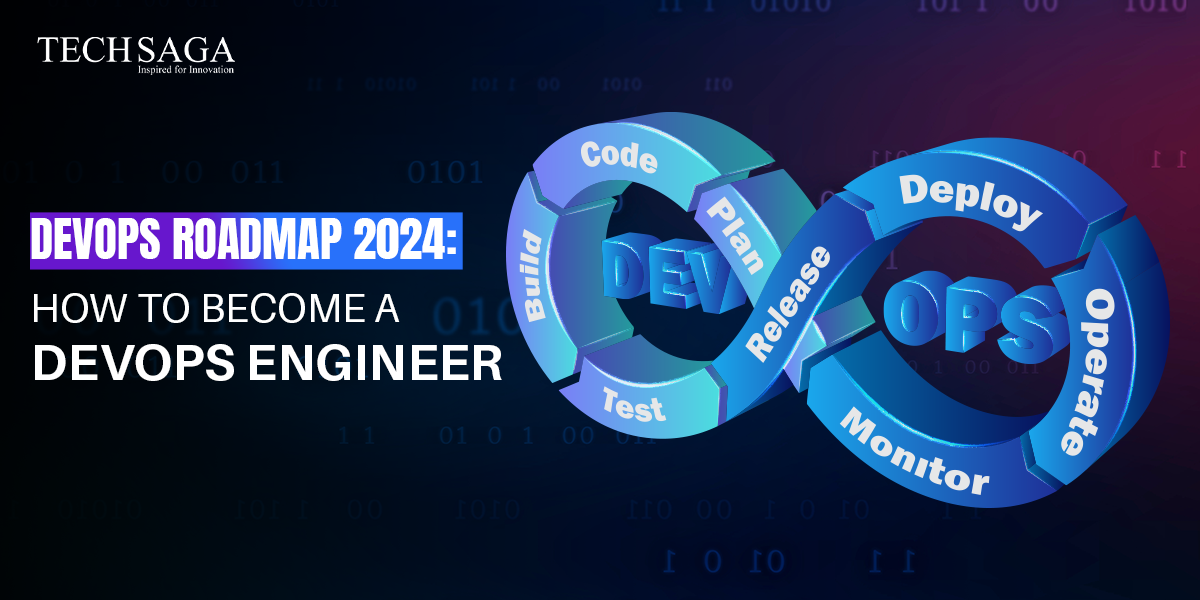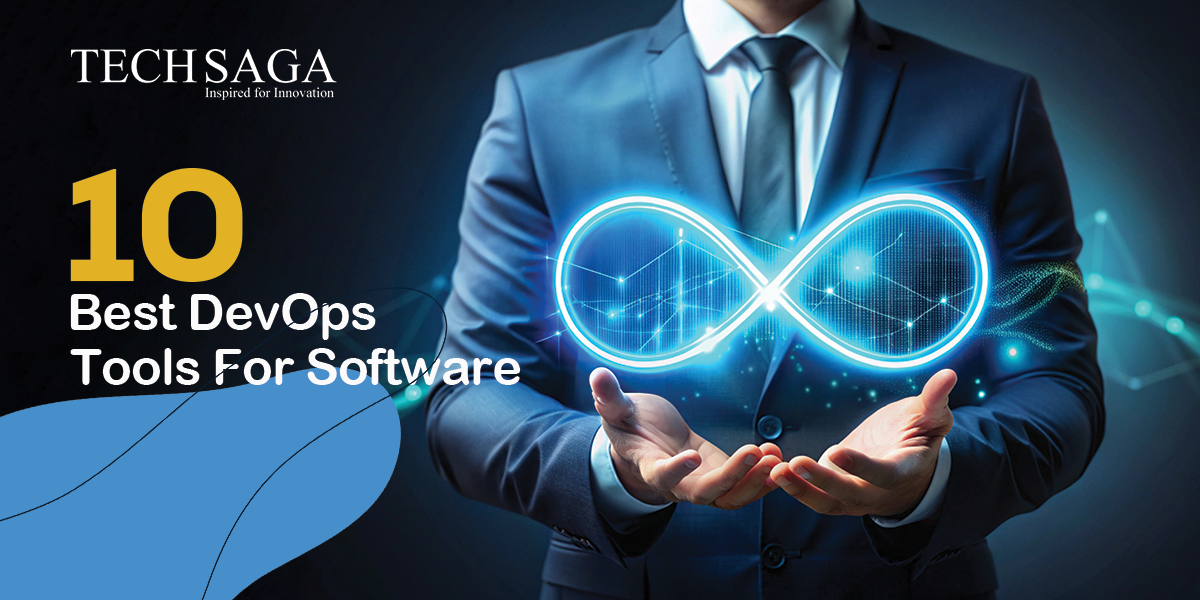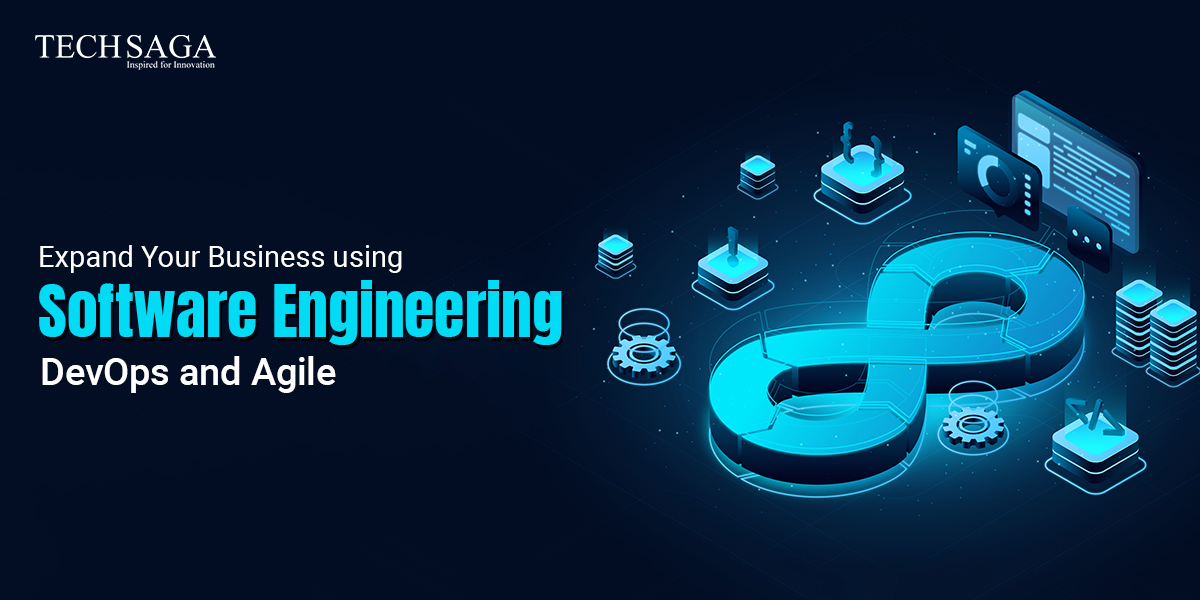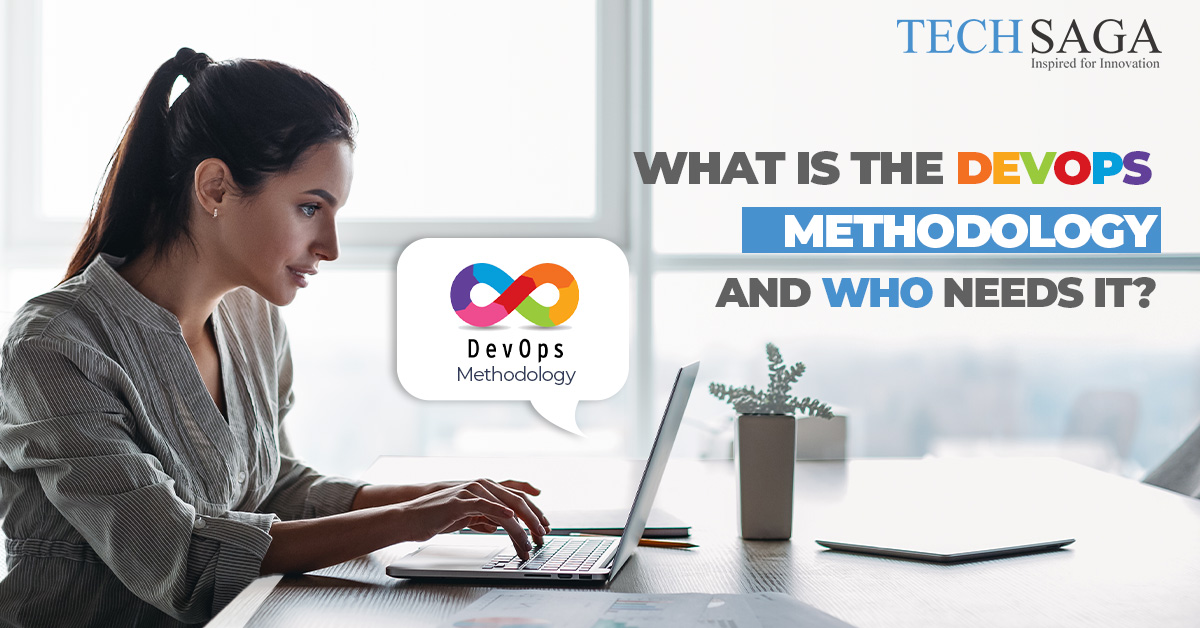Team Techsaga
Gain valuable insights and stay updated with the latest innovations through our engaging blog. Explore trends, technology advancements, and expert opinions to navigate the ever-evolving world of IT.
DevOps RoadMap 2024: How to Become a DevOps Engineer
The importance of DevOps engineers has increased in the ever-changing technological landscape. Devops engineers follow certain Devops RoadMap to become Devops engineers. They are now critical to any organization looking to improve software delivery speed and reliability. By 2024, there will still be a growing need for skilled DevOps workers providing devops solution. Moreover, these experts are essential in helping the development and operations teams work together to create a smooth and effective workflow. The need for proficient DevOps practitioners is expected to rise due to the increasing dependence on technology, rendering their knowledge essential in today’s cutting-edge digital environment.
What is DevOps?
The collaborative strategy known as DevOps, which stands for Development and Operations, helps to close the gap between software development and IT operations. Furthermore, streamlining the software development lifecycle through automation, integration, and communication is the main focus.
By eliminating organizational divisions, encouraging a culture of constant communication, and automating tedious work, DevOps seeks to increase productivity. DevOps represents a paradigm shift in how teams conceptualize and deliver software solutions by encouraging quicker and more dependable software delivery. Eventually, boosts overall product quality and allows organizations to adapt quickly to market needs.
Who is a DevOps Engineer?
A DevOps engineer is a proficient IT specialist who blends knowledge of IT operations with software development. To enable smooth communication between the development and operations teams, this position entails developing and overseeing automated procedures. Throughout the software development lifecycle, from coding and testing to deployment and maintenance, DevOps engineers strive to increase efficiency. Moreover, they use technologies for infrastructure automation, continuous integration, and delivery to speed up development cycles. Furthermore, enhances software quality, and guarantees the scalability and dependability of systems in the rapidly changing technological environment.
To become a successful DevOps engineer, one needs to follow the DevOps roadmap. Having the Dveops roadmap will help you get on the right path.
Key Responsibilities of DevOps Engineer:

1. Automation and Scripting-
DevOps engineers are responsible for automating manual processes and tasks through scripting and coding. By leveraging tools such as Ansible, Puppet, or Chef, they streamline repetitive activities, enhancing efficiency and reducing the likelihood of errors in deployment and configuration management.
2. Continuous Integration/Continuous Deployment (CI/CD)-
DevOps engineers design and implement CI/CD pipelines, enabling the automated building, testing, and deployment of software. This ensures a continuous and reliable delivery process, reducing time-to-market and enhancing the overall quality of applications.
3. Infrastructure as Code (IaC)-
Implementing IaC principles using tools like Terraform or CloudFormation, DevOps engineers define and manage infrastructure through code. This approach enhances scalability, reproducibility, and consistency in deploying and managing infrastructure components.
4. Collaboration and Communication-
Fostering effective communication and collaboration between development, operations, and other cross-functional teams is a crucial aspect of the role. DevOps engineers work to break down silos, ensuring a cohesive and cooperative environment for the entire software development lifecycle.
5. Monitoring and Logging-
DevOps professionals set up robust monitoring and logging systems using tools like Prometheus, Grafana, or the ELK stack. Monitoring system performance, tracking application behavior, and analyzing logs are essential for proactive issue resolution, performance optimization, and continuous improvement.
6. Security Integration (DevSecOps)-
Integrating security practices into the DevOps pipeline, DevOps engineers collaborate with security teams to identify and address vulnerabilities early in the development process. They implement security scanning tools and ensure compliance with security standards, fostering a culture of security within the organization.
DevOps RoadMap to follow and Become a DevOps Engineer:
Understanding the Core Principles of DevOps-
- DevOps is not just a set of tools; it’s a cultural and organizational shift. Begin by understanding the core principles of collaboration, communication, and integration between development and operations teams.
- Familiarize yourself with the three ways of DevOps: The First Way focuses on the flow of work from development to operations. Secondly, emphasizes feedback loops, and the Third Way centers around continuous learning and improvement.
Mastering Version Control-
- Git remains the cornerstone of version control systems. Ensure you have a solid understanding of Git, including branching, merging, and resolving conflicts.
- Also, explore Git-based workflows such as GitFlow and GitHub Flow, which are commonly used in DevOps practices.
Automation Tools-
- Automation is at the heart of DevOps. Learn automation tools like Ansible, Puppet, and Chef for configuration management.
- Additionally, gain proficiency in scripting languages such as Python, Shell, or Ruby to automate repetitive tasks and processes.
Containerization and Orchestration-
- Docker has revolutionized application deployment through containerization. Understand the concepts of containers and create Docker images for your applications.
- Kubernetes is the leading container orchestration tool. Therefore, learn how to deploy, manage, and scale containerized applications using Kubernetes.
Cloud Computing-
- Cloud platforms like AWS, Azure, and Google Cloud are integral to modern DevOps practices. Acquire hands-on experience with cloud services, infrastructure as code (IaC), and serverless computing.
- Learn about container services provided by cloud providers, such as AWS ECS or Azure Kubernetes Service (AKS). Cloud Application Development Services are easily available.
Continuous Integration/Continuous Deployment (CI/CD)-
- Jenkins, GitLab CI, and CircleCI are popular CI/CD tools. Build and automate pipelines to facilitate continuous integration, deployment, and delivery.
- Also, understand the importance of automated testing at different stages of the development pipeline.
Monitoring and Logging-
- Implement robust monitoring and logging solutions using tools like Prometheus, Grafana, ELK Stack (Elasticsearch, Logstash, Kibana), and Splunk.
- Gain insights into application performance, system health, and user behavior through effective monitoring and logging practices.
Security in DevOps-
- DevSecOps is gaining prominence. Familiarize yourself with security best practices in the development and operations lifecycle.
- Moreover, learn about security scanning tools and techniques to identify and address vulnerabilities in code and infrastructure.
Soft Skills and Collaboration-
- Develop strong communication and collaboration skills. DevOps is about breaking down silos between teams, and effective communication is key.
- Embrace a collaborative mindset, as working closely with developers, operations, and other stakeholders is fundamental to success in a DevOps role.
Continuous Learning and Community Engagement-
- Stay updated on industry trends, new tools, and best practices by actively participating in forums, conferences, and online communities.
- Also, build a professional network and engage with experienced DevOps practitioners to gain insights and advice.
In a Nutshell:
So, becoming a DevOps engineer in 2024 requires a combination of technical skills and a deep understanding of DevOps methodology and principles. Eventually, it requires a commitment to continuous learning. By following this roadmap and staying adaptable in the ever-evolving tech landscape, aspiring DevOps professionals can position themselves for success in this dynamic and rewarding field.
Techsaga empowers aspiring DevOps professionals to navigate the dynamic technology market, providing the tools and DevOps roadmap needed for success. Contact us now to accelerate your journey and secure a rewarding future in DevOps.
TAG: Devops Methodology




